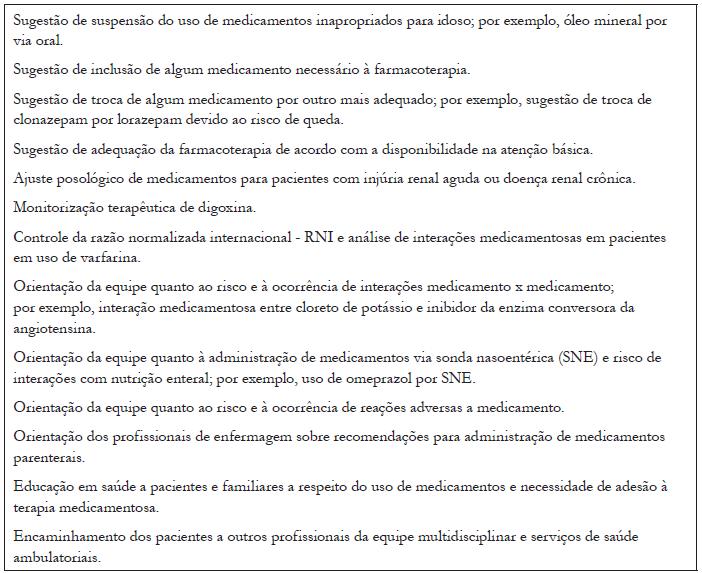OBJECTIVE:
To describe the role of pharmacists within a multiprofessional team, focusing on care of hospitalized elderly, and pharmacist interventions performed during pharmacotherapy follow up of individuals assisted.
METHOD:
Descriptive, exploratory and retrospective study. The sample involved 24 patients aged >60 years under the care of the pharmacist in the multiprofessional team for elderly care in the investigated hospital. Pharmacotherapy was analyzed in relation to the number of drugs, their indication, dosage, biopharmaceutical aspects related to the oral or enteral route of administration, stability, incompatibility and parenteral drug routes, drug interactions, effectiveness and safety. The adequacy to the elderly was analyzed according to Beers criteria. Drugs with anticholinergic activity were identified according to Rudolph et al. and Chew et al. Information was recorded on a data collection tool and the descriptive statistic analysis was carried out in SPSS 10.0.
RESULTS:
At the moment of hospital discharge, none of the subjects were making use of drugs potentially inappropriate for the elderly; eight (30.0%) patients were using such drugs when admitted to hospital; and five (20.8%) used such drugs during their hospitalization. The number of patients in use of anticholinergic drugs decreased from 19 (79.2%) during hospitalization to four (16.6%) at hospital discharge. Twenty one (87.5%) patients required pharmaceutical interventions and 20 (83.3%) required pharmaceutical interventions by the physician. A total of 163 pharmaceutical interventions were carried out, representing a mean of 6.79 interventions/patient and 82.2% acceptance.
CONCLUSION:
The role of pharmacists in caring for elderly optimizes pharmacotherapy and affects the safety and effectiveness of the aged care.
Drug Therapy; Patient Care Team; Aged; Health of the Elderly; Hospital Care

